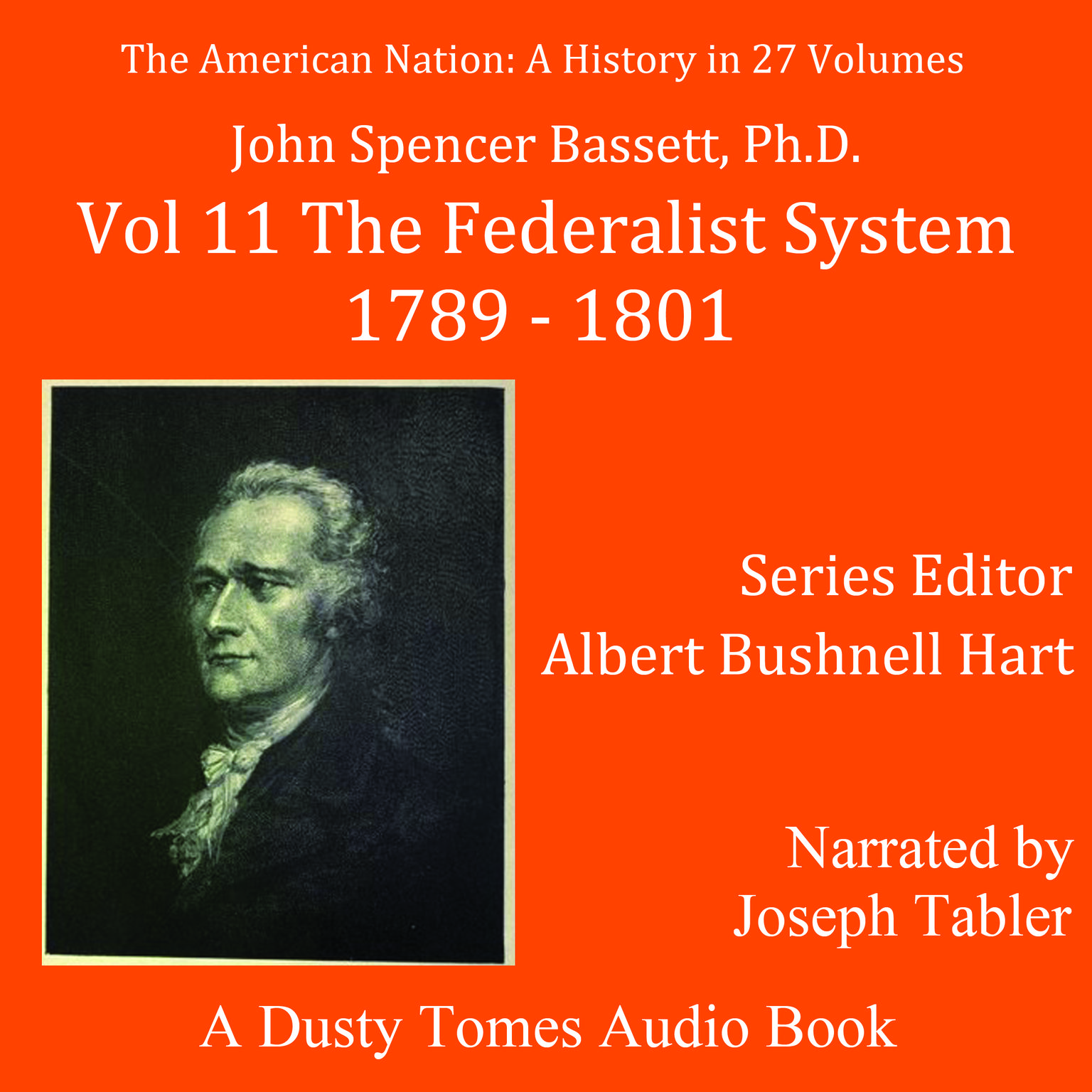Publisher Description
A Dusty Tomes Audio Book
In Cooperation with Spoken Realms
The Federalist System, 1789–1801 by John Spencer Bassett, PhD, Professor of History, Trinity College, NC
Narrated by Joseph Tabler
Volume 11 of 27 in The American Nation: A History published by Harper Brothers (1904–1918) Edited by Albert Bushnell Hart, Professor of History at Harvard University
From the Editor’s Introduction to the Series: That a new history of the United States is needed, extending from the discovery down to the present time hardly needs a statement. No such comprehensive work by a competent writer is now in existence. Individual writers have treated only limited chronological fields. Meantime there, is a rapid increase of published sources and of serviceable monographs based on material hitherto unused. On the one side, there is a necessity for an intelligent summarizing of the present knowledge of American history by trained specialists; on the other hand, there is a need for a complete work, written in an untechnical style, which shall serve for the instruction and the entertainment of the general reader.
From the Editor’s Introduction to Volume Eleven: Although the separate history of the commonwealths is, for the most part, merged into that of the nation, the national history grows steadily more complex … The special function of this volume in the American Nation series is to describe the foundations of the present American party system and its application to the extremely difficult problems of that time … In a single sentence, the province of the book is to show how, from 1789 to 1801, the American people faced a new Constitution, a new party system, and a new set of problems, yet contrived to make their government effective and transmit it unimpaired.
From the Author’s Preface: On its political side this volume treats three principal facts: the successful establishment of the government under the Constitution, the organization of the Republican party on the basis of popular government, and the steady adherence of the government to a policy of neutrality at a time when we were threatened with serious foreign complications. The first achievement was chiefly due to Hamilton, the second to Jefferson, and the third to Washington, first, and, after his presidency, to John Adams. To these cardinal features of the history of the time I have added some chapters on social and economic conditions … American self-government was never better justified than during the first three national administrations.
Editor’s Introduction
Author’s Preface
I. Launching the New Government (1789–1791)
II. Hamilton’s Financial System (1789–1791)
III. Founding the Republican Party (1790–1792)
IV. England and the Northwest (1789–1794)
V. Spain and the Southwest (1789–1795)
VI. Neutrality and the Mission of Genet (1793)
VII. The Whiskey Insurrection (1793–1795)
VIII. The Perplexing Problem of British Trade (1793–1796)
IX. Washington as a Party President (1795–1797)
X. The Republican Court (1789–1800)
XI. The State of Society (1789–1800)
XII. The First Victories of Anti-Slavery (1777–1804)
XIII. Economic Conditions (1789–1800)
XIV. Political Affairs Early in Adams’s Administration (1797–1798)
XV. The Quarrel with France (1796–1797)
XVI. War or Peace (1797–1798)
XVII. Alien and Sedition Acts (1797–1798)
XVIII. Kentucky and Virginia Resolutions (1798–1800)
XIX. Downfall of the Federalists (1798–1801)
Audio cover picture: Alexander Hamilton
Dusty Tomes Audio Books are public domain books retrieved from the ravages of time. Available for the first time in this format for your pleasure and consideration.
Download and start listening now!
“A landmark in the writing of US history.”
—
American Historical Association,, praise for the series











